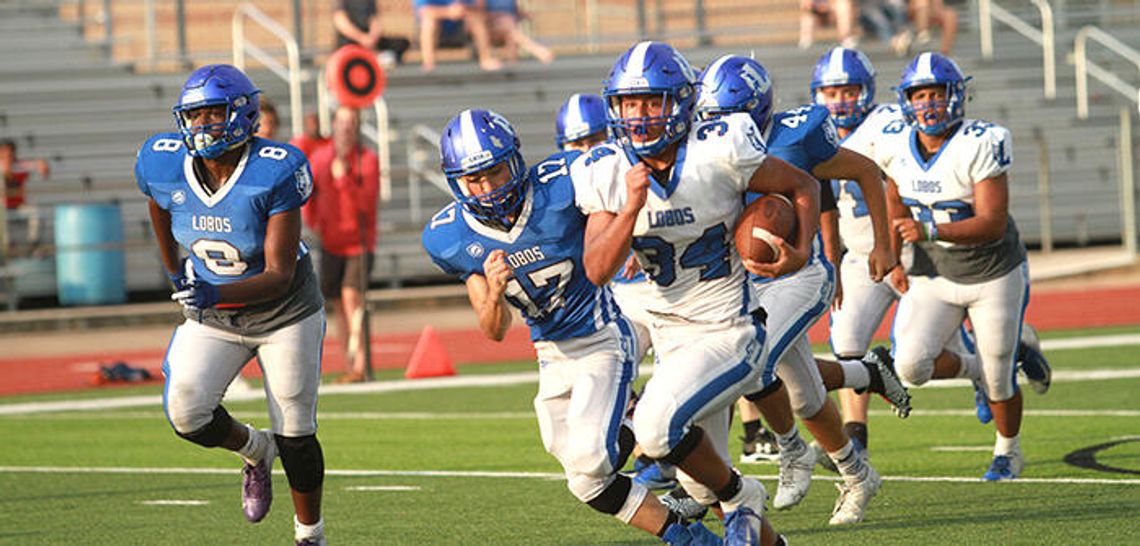For the better part of 90 minutes May 22, Lehman head football coach Bruce Salmon didn’t hesitate in stressing to any player within earshot the need to give just a little more.
Granted, it could have been easy for the Lobos to ease off the gas in their final spring practice of 2019.
But for a team that’s trying to recover from a winless 2018 campaign, building consistency, continuity and work ethic, both on and off the field, months before August drills even start is an essential element. It all could help a Lobo program brimming with youth to take a step in the right direction.
“Being consistent, taking care of business in the classroom and at home, showing up to early morning practices, those are things that are different right now, because we’re building habits,” Salmon said.
Developing the talent coming in has been the focus for spring, as well as trying to create depth on the roster, Salmon said. While there are a handful of returning athletes who will make a difference, Salmon said the Lobos will have a lot of “young guys” on the roster.
That task became more of a challenge as the Lobos dealt with Hays CISD’s new attendance zone boundaries. The team lost roughly 50 players to either Hays or Johnson High as a result of the rezoning process last fall.
While they lost some talent, Salmon said the experience isn’t foreign to guys who “are here and are loyal.” Salmon said he’s had experience in such affairs, having been through several situations where the school he was coaching at lost players due to the opening of a new campus.
“Those are the guys we coach and we don’t worry about anyone else,” Salmon said.
The key is working with the “middle 60 percent” of the program and building good habits, as well as consistency, Salmon said. That started by holding spring drills for a second straight year; Lehman has not held back-to-back spring workouts in more than four years.
Maintaining continuity is equally a critical attribute for the program as well. Lehman’s senior class has been led by three different head coaches in four seasons.
Giving younger players an idea of what to expect at the varsity level is also an important part of the spring football process.
“Spring is the opportunity to see and do those things, to see how they compete and handle consistency,” Salmon said. “We’ve had 18 practices and no games. You find out who wants to be here, too.”
Lehman is turning to its returning players to help speed all of those processes along. Lobo offensive lineman Gilbert Partida said the upperclassmen are trying to be the example and are teaching younger players the need to step up and rise to the occasion when needed.
Other attributes include pushing younger players to give 100 percent at all times.
“We play against really good teams. If we don’t rise to the occasion, we can have a bad season like last year, and no one wants that,” Partida said.
Maintaining it all during the summer is what Salmon and his staff plan to stress to players. New rules allowing coaches more time to interact with athletes prior to August drills could go a long way toward that goal.
In October 2018, the UIL, the governing body of high school athletics in Texas, approved amendments expanding the time period for summer strength and conditioning workouts from six weeks to the entire summer break, according to multiple reports.
Those changes, which went into effect May 1, will allow coaches to have two hours of specific skill instruction per week with athletes, with a one-hour limit per day, according to a Houston Chronicle report.
Obtaining more buy-in as a team to participate in summer strength and conditioning workouts, as well as offering “no excuses,” is what Partida hopes to see.
“It’s just focusing and locking in, working hard and not slacking off,” Partida said.










